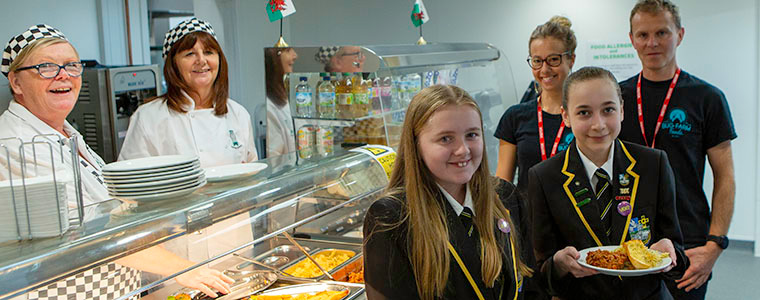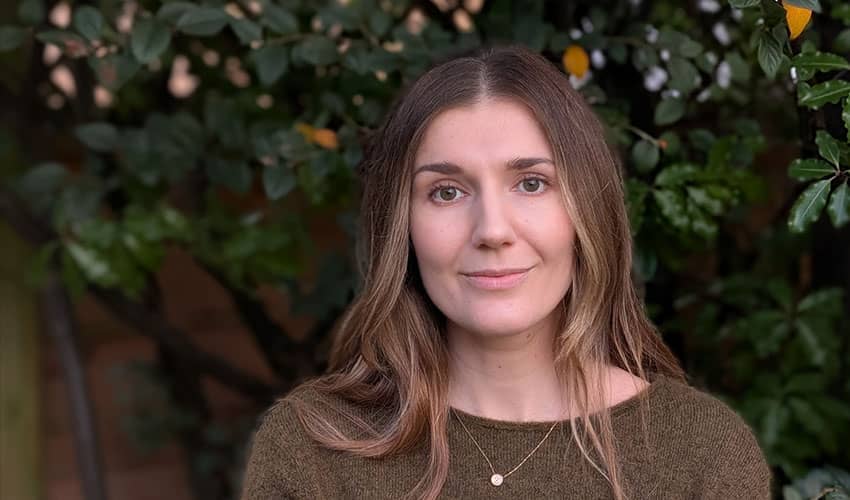UWE Bristol study finds schoolchildren are receptive to eating insects as part of daily diet

A study carried out by a researcher at the University of the West of England (UWE Bristol) in collaboration with Bug Farm Foods has found that schoolchildren are open to eating insects as part of their daily school meals.
Led by Dr Verity Jones, a Senior Lecturer in Education at UWE Bristol, the study examined young people's attitudes towards eating insects, known as entomophagy, and their wider understanding of sustainability in the food chain.
Dr Jones said: ''This is the first time that a study like this has focused on young people and the first time that practical tastings with edible insects have been conducted. In what might be a surprise to many parents, the reception from children was overwhelmingly positive.''
Educational workshops, focus groups and tasting sessions were held involving VEXo – an insect and plant protein mince from Welsh company Bug Farm Foods. One hundred and twenty-four primary schoolchildren and 63 secondary school pupils across three schools in Wales tasted VEXo Bolognese and burgers.
The full findings of the study, published in Children's Geographies Journal, revealed that young people had reacted positively to the food and were open to the idea of eating it on a regular basis. The VEXo Bolognese was particularly popular with 100% of children responding positively to the taste.
When VEXo Bolognese was placed temporarily on the school menu, 60% of young people eating hot meals chose the VEXo option, favouring it over traditional meal options.
The study, funded by Welsh Government and Innovate UK's Small Business Research Initiative, found that the presentation of the insect-based foods was critical in garnering a positive response. The insect protein was presented as familiar food types – Bolognese and burgers- which made children more open to trying it.
Other factors that contributed to the positive response included being given the choice to try the food rather than being pressured, young people's desire to be more sustainable and being aware of how the product had been ethically and sustainably farmed.
One schoolchild taking part in the study said: ''We all know that looking after the planet is important – right. But we don't learn about what we can actually do to make a difference [at school]. This [VEXo] is real. We can actually make changes to what we eat and that might actually make a difference.''
Alongside tastings, schoolchildren learned more about food sustainability and the health benefits of eating insects. VEXo Bolognese contains almost 80% less saturated fat and almost 40% more protein than the equivalent meat Bolognese. Meanwhile, it takes just 1-10 litres of water to produce high-welfare edible insect protein, compared to 22,000 litres to produce the equivalent weight of intensively farmed beef.
Commenting on the wider implications of the study, Dr Jones said: ''There is increasing pressure to feed the world's growing populations a diet which is both healthy and sustainable for the planet. Introducing insects into our diets could be part of the solution but, to do that, we have to ensure that the younger generations are on board. The results of this study show that young people are open to the idea of eating insects and therefore potentially other novel, sustainable foods. Like many adults, they too want to make informed food choices that are good for their health and the environment.''
Following the success of the study and the positive reception from schoolchildren, VEXo menu options will be rolled out across Wales: Pembrokeshire County Council will be offering VEXo Bolognese on school lunch menus for the Royal Entomological Society's National Insect Week in June, with plans for the dish to be added to the regular menu later in the year.
Dr Beynon said: “It is predicted that there will be almost 10 billion humans on Planet Earth by 2050. Therefore, it is essential to think about different ways of providing food for our growing population. Insects are extremely efficient at converting their feed into food for us – digesting parts of plants that we can't and turning them into edible protein – and that, alongside the fact that they can be nutritious and delicious, is why more than 2 billion people across the world include them in their diets already.
“However, one of the main barriers to the growth of entomophagy (eating insects) here in the UK is consumer attitudes: as adults, we are generally wary of new things. Therefore, it is extremely encouraging to find that children are open to diversifying their food choices and, like us, passionate about eating and living, more sustainably. As a world in the middle of a climate crisis and a biodiversity mass extinction, there has never been a more urgent need for change, and we believe that including insects in our diets is one change that we can all easily make.”
Related news

16 February 2026
UWE Bristol researchers awarded grant to explore impact of asset recovery on offenders
UWE Bristol academics have been awarded funding to explore of the impact of asset recovery on deterring offender behaviour and disrupting crime networks.

10 February 2026
Work by UWE Bristol lecturer features in Government’s National Cancer Plan
Work by a UWE Bristol academic has been included in the Government’s National Cancer Plan.

23 January 2026
On-demand minibus services beneficial in rural areas but face financial challenges, trials suggest
Trials of ‘demand responsive transport’ minibus services boosted connectivity for people in rural and suburban areas, according to a new report produced by UWE Bristol researchers.

18 December 2025
UWE Bristol professor appointed National Institute for Health and Care Excellence CEO
Jonathan Benger CBE, Professor of Emergency Care at UWE Bristol, has been appointed as the new chief executive officer of the National Institute for Health and Care Excellence (NICE).

17 December 2025
Findings revealed from first UK study into experiences of mothers who are survivors of rape pregnancy
UWE Bristol academics have revealed the findings of the first UK-based study of the experiences of mothers who are survivors of rape pregnancy.

11 December 2025
Social media influencer work is far more demanding than it looks, research finds
A study exploring the mental health impacts of social media influencer work has revealed that life online is far more demanding than it appears.

25 November 2025
UWE Bristol experts join film Q&A exploring music and melodrama
Academics will take part in the Cary Comes Home Festival, with a post-screening Q&A exploring music, melodrama and emotional storytelling in classic cinema.

17 November 2025
Urgent reform needed to support ambulance-delivered end of life care, study finds
More than three quarters (78 per cent) of paramedics sometimes fear doing the wrong thing when caring for people in the last year of life, new research has found.

13 November 2025
Bristol’s screen industry experiences “boom-and-bust cycle” after post-pandemic recovery, new research from UWE Bristol finds
New research from UWE Bristol provides detailed insight into Bristol's screen sector.

13 November 2025
New AI research to revolutionise animal welfare
A UWE Bristol research project will combine behavioural science and AI to create technology that understands not only what animals do, but how they feel.

10 November 2025
Lessons from Low Traffic Neighbourhoods will drive better public engagement, study finds
Lessons from Low Traffic Neighbourhoods have informed a new toolkit to improve engagement with the public on challenging local street issues.

06 November 2025
First-of-its-kind study aims to help more people spend their final days at home
A new study will explore how architectural design could support end-of-life care in domestic settings.






